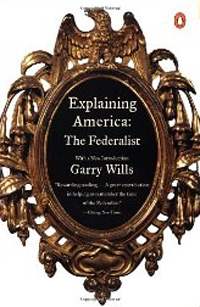

|
Further Resources
| By Witherspoon: |
|
 |
|
|
 |
In the midst of a political and economic crisis, when the government had already run wild deficits, debts, and inflation, one man rose to condemn corrupt policies and practice.
Risking reputation and popularity, he warned Congress that "paper money . . . is not, properly speaking, money at all," but rather, "essentially defective as a medium of universal commerce."
Worse yet, "to arm such bills with the authority of the state, and make them a legal tender in all payments, is an absurdity so great that is not easy to speak with propriety upon it."
While these issues and warnings describe our own modern economic crisis, they actually come from the speeches of the Rev. John Witherspoon—the only Clergyman to sign the Declaration of Independence, and one of the most revered speakers in the Continental Congress from 1776–1782.
Amidst the failure of the Continental paper money, Witherspoon's speeches on Money and Finance related a theory of money so sound that even some of Witherspoon's opponents in Congress eventually capitulated. After the Continental currency finally collapsed, they came to Witherspoon urging him to publish his speeches as an essay for the education of future generations.
|
|
| On Witherspoon: |
|
 |
Considered the first significant teacher of rhetoric in America, John Witherspoon also introduced Scottish moral philosophy in America, and as president of Princeton reformed the curriculum to give emphasis to both studies. He was an active pamphleteer on religious and political issues and a signer of the Declaration of Independence.
Thomas P Miller argues that Witherspoon's career exemplifies the Ciceronian ideal, and the eight selections Miller presents from the 1802 American edition of the Works corroborate that claim.
|
|
 |
Presbyterian minister John Witherspoon was a key figure, politically and religiously, in the formative years of the United States. In this fresh account of Witherspoon's thought, L. Gordon Tait focuses on Witherspoon's piety--the way Witherspoon believed that the Christian faith should take visible and practical form in ministry, politics, and everyday obedience and devotion. The Piety of John Witherspoon is filled with photographs from Witherspoon's life, and Tait's comprehensive treatment of Witherspoon makes a significant contribution to the understanding of his impact on church, education, and society.
|
|
 |
Jeffry H. Morrison offers readers the first comprehensive look at the political thought and career of John Witherspoon—a Scottish Presbyterian minister and one of America's most influential and overlooked founding fathers. Witherspoon was an active member of the Continental Congress and was the only clergyman both to sign the Declaration of Independence and to ratify the federal Constitution. During his tenure as president of the College of New Jersey at Princeton, Witherspoon became a mentor to James Madison and influenced many leaders and thinkers of the founding period. He was uniquely positioned at the crossroads of politics, religion, and education during the crucial first decades of the new republic.
Morrison locates Witherspoon in the context of early American political thought and charts the various influences on his thinking. This impressive work of scholarship offers a broad treatment of Witherspoon's constitutionalism, including his contributions to the mediating institutions of religion and education, and to political institutions from the colonial through the early federal periods. This book will be appreciated by anyone with an interest in American political history and thought and in the relation of religion to American politics.
|
|
 |
|
|
 |
|
|
| On Related Topics: |
|
 |
From Aristotle to Thomas Jefferson, seminal thinkers have declared 'common sense' essential for moral discernment and civilized living. Yet the story of commonsense philosophy is not well known today. Scott Segrest traces the history and explores the personal and social meaning of common sense as understood especially in American thought and as reflected specifically in the writings of three paradigmatic thinkers: John Witherspoon, James McCosh, and William James. The first two represent Scottish Common Sense and the third, Pragmatism, the schools that together dominated American higher thought for nearly two centuries. Educated Americans of the founding period warmly received Scottish Common Sense, Segrest writes, because it reflected so well what they already thought, and he uncovers the basic elements of American common sense in examining the thought of Witherspoon, who introduced that philosophy to them... It was common sense, he affirms, that underlay the Declaration of Independence and the founders' ideas of right and obligation that are still with us today.
|
|
 |
Award-winning historian Garry Wills's definitive analysis of the Federalist Papers (which is sensitive to the influence of Witherspoon on his many students, including James Madison). In 1787 and 1788, Alexander Hamilton and James Madison published what remains perhaps the greatest example of political journalism in the English language--the Federalist Papers. Written to urge ratification of the Constitution, the eighty-five essays--trenchant in thought and graceful in expression--defended the Constitution not merely as a theoretical statement but as a practical instrument of rule. Now updated with a new introduction, Garry Wills's classic study subjects these essays to rigorous analysis, illuminating, as only he can, their significance in the development of the philosophy on which our government is based.
|
|